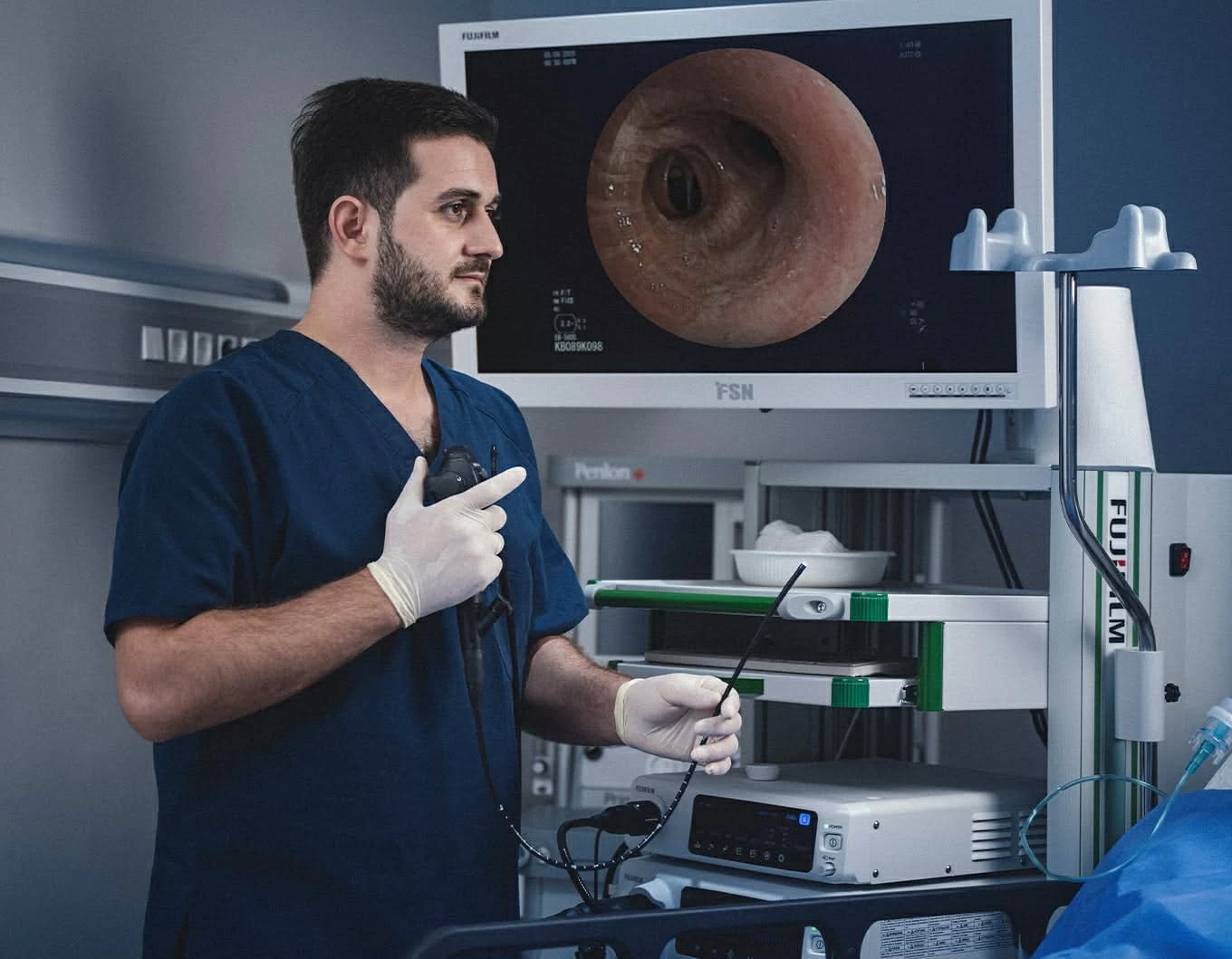Department of Pulmonology
Department of Pulmonology
Pulmonary disease includes any condition or disorder of the lungs that interferes with their normal function. Such conditions may present with symptoms of varying severity and often require regular treatment and medical supervision. Progressive lung pathologies can pose a serious threat to life; however, timely diagnosis and properly selected therapy significantly increase the chances of a favorable outcome.
When to Consult a Pulmonologist
A consultation with a pulmonologist is recommended if you experience:
• Cough
• Shortness of breath or difficulty breathing (dyspnea)
• Wheezing or whistling breathing sounds
• Chest tightness or pain
• Fatigue or general weakness
• Coughing up blood
• Frequent or recurrent respiratory infections
• Clubbing of fingers (rounded fingertips)
• Bluish or grayish skin tone, especially around the lips or nails (cyanosis)
Causes of Respiratory Diseases
• Tobacco use (smoking)
• Viral, bacterial, or fungal infections
• Genetic and congenital disorders
• Connective tissue diseases (such as rheumatoid arthritis, lupus, scleroderma, sarcoidosis, etc.)
• Inhalation of harmful chemical or organic substances
• Long-term use of certain medications
The Most Common Respiratory Diseases
• Pneumonia
• Asthma
• Chronic Obstructive Pulmonary Disease (COPD)
• Pleural effusion
• Pulmonary fibrotic/interstitial diseases
• Sarcoidosis
• Bronchiectasis
• Lung cancer and other oncological pathologies
• Atelectasis and pneumothorax
Services Provided by the Pulmonology Department
The Pulmonology Department offers comprehensive diagnostic and therapeutic services, including:
• Spirometry and respiratory function testing
• X-ray and computed tomography (CT) scans
• Bronchoscopy
• Allergy testing
• Lung biopsy
• Medication-based and inhalation therapy
• Monitoring and rehabilitation for chronic respiratory diseases


